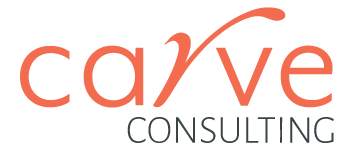The practice of lifelong learning is an instinctual adaptation to the increasing threat of becoming obsolete. Technology, globalisation and business operations are continuing to evolve at a rapid rate. With this comes constant change in job requirements, and the skills required to perform and maximise career options over time.
One of the gifts of the pandemic is knowledge workers having to embrace new ways of working and new technology, especially communication platforms. Everyone had to become proficient quickly and it was a collective experience. The “have to” made the learning non-negotiable, and the collective experience allowed people to be less afraid of getting it wrong. Unwittingly, continuous learning became woven into employee development.
Being curious and open to learning is a behaviour that employers are looking for in their employees. By embracing lifelong learning, and incorporating continuous learning as part of how we approach each day, also leads to being more adaptable to change. Adaptability is another key competency sought by organisations. To ensure relevance, and reduce the risk of redundancy, it is important for us to continue learning through every stage of our career and transitioning through life’s phases.
The benefits of lifelong learning
As opposed to formal education we experience through school and tertiary institutions, lifelong learning aligns more closely with an interest or immediate purpose, such as promotion or upskilling. It taps into our natural curiosity and ability to learn, which leads to a greater improvement in personal and professional development.
Research with people who embrace lifelong learning has found improvements in areas that provide immediate value, as well as supporting productive longevity.
Personal Development
- Memory consolidation and retrieval
- Motivation and self-confidence
- Greater contribution to society
- Embracing new hobbies
- Greater cultural empathy
Professional Development
- Skill development
- Adaptability to change
- Creative thinking
- Ability to change career paths
- Career options and sense of value
How do you become a lifelong learner?
Even those involved in the review of education are looking at how we adapt to future needs. The UNESCO Education Strategy 2014-2021 suggests education recommends a shift from teaching fundamental skills to learning for personal development, with an emphasis on foreseeing skills that may become necessary in the future.
“The concept of lifelong learning requires a paradigm shift away from the ideas of teaching and training towards those of learning, from knowledge-conveying instruction to learning for personal development and from the acquisition of special skills to broader discovery and the releasing and harnessing of creative potential. This shift is needed at all levels of education and types of provision, whether formal, non-formal or informal.”
UNESCO Education Strategy
Opportunities to learn can be found across a multitude of channels – short courses, formal qualifications, reading, YouTube, conversations with colleagues and friends ,and experimentation. To be a lifelong learner, we have to first believe we are capable and embrace the learning phase where we actively explore and practice new knowledge and skills.
Moving out of our comfort zone and developing a new skill can be challenging for anyone, particularly when juggling the complexity that life can bring. Here’s a simple acronym to help embed the practice of lifelong learning – PRACTICED.
Priority
Make the practice your priority.
Reflect
Retention of information requires repetition as well as reflection on how others learn, and take feedback.
Action
Take your newfound knowledge and put it into action, again and again. We learn best by doing.
Curiosity
A curious mind is open like a parachute and willing to learn.
Teach
Teaching others what we’ve learnt can consolidate and reinforce our understanding.
Insight
Unique discoveries are found by individuals who have the judgement and persistence to see ideas to fruition.
Concentration
Your mindset and mental focus will help you to refine your learning capability.
Exercise and nutrition
Your mental wellbeing relies on the strength of your physical wellbeing.
Different learning styles
We learn through seeing, hearing and doing. Use them all to embed new knowledge and skills.
Lifelong learning is an essential part of our career and personal development. Taking the step to make it a focus of our everyday lives will ensure we can remain open and curious as well as lead long and productive lives of our choosing.
Creating your personal learning plan
Creating a personal learning plan is a very useful tool for planning and managing your professional development.
A simple 4 step approach entails:
- Identify a Learning Goal, the ability you want to develop (eg. a particular knowledge, skill or attitude)
- Research the knowledge needed to achieve your Learning Goal
- Identify the experience(s) where you can apply the knowledge in a practical hands-on way to reinforce the learning
- Connect with a person/mentor/coach/colleague/manager who will support you to develop and apply that ability.
In summary
Lifelong learning is not just an essential part of our career and personal development, it can also feed our motivation and brain health. Taking the step to make it a focus of our everyday lives will ensure we can remain open and curious, as well as lead long and productive careers of our choosing.

